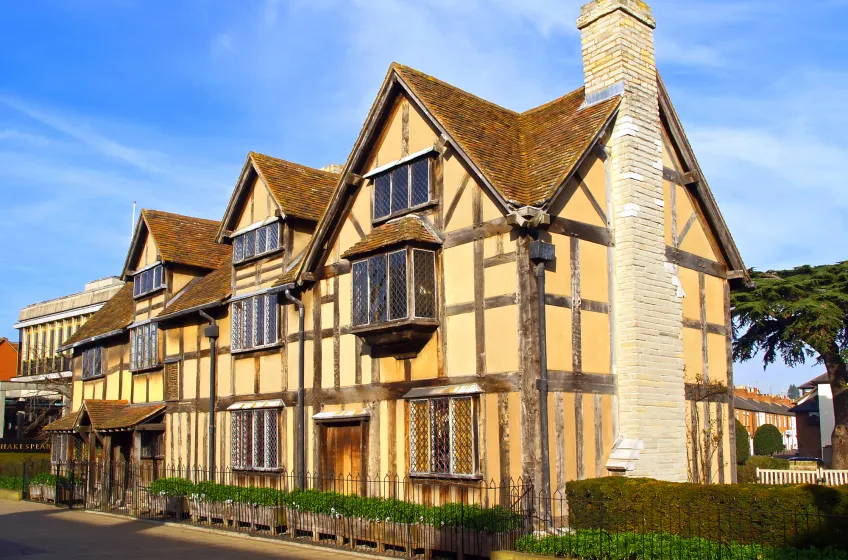William Shakespeare's Life in Stratford-upon-Avon
a visitor's overview of the famous playwright's connections with Stratford-upon-Avon
William Shakespeare was born in Stratford-upon-Avon, England, on April 23, 1564. His father, John Shakespeare, was a glove-maker and wool dealer who held several local positions of authority. William was the third child of John and his wife Mary Arden, who was the daughter of a wealthy landowner.
As a young boy, William likely attended the local grammar school where he would have studied Latin, Greek, and the classics. It is believed that he left school at the age of 14 due to financial difficulties in his family. It is also rumored that he was a poacher in his youth, which may have inspired his later writings about nature and the countryside.
In 1582, at the age of 18, Shakespeare married Anne Hathaway, who was eight years his senior and pregnant at the time. They had three children together: Susanna, and twins Hamnet and Judith. Shakespeare eventually left Stratford to pursue a career in London as an actor and playwright, leaving his family behind.
Despite his success in London, Shakespeare maintained ties with Stratford and his family there. He purchased a large house in Stratford known as New Place in 1597 and became a prominent figure in the local community, serving as a member of the town council and investing in property.
In 1613, Shakespeare retired from the stage and returned to Stratford, where he lived out the rest of his life. He died on April 23, 1616, at the age of 52, and was buried in the chancel of Holy Trinity Church in Stratford, where he had been baptized and where he had attended services throughout his life.
Today, visitors to Stratford can still see many of the places associated with Shakespeare's life, including his birthplace, New Place, and Holy Trinity Church. The town also hosts the Royal Shakespeare Company, which performs his plays and promotes his legacy. Despite the passing of centuries, Shakespeare's work continues to captivate audiences around the world, and his legacy remains an integral part of Stratford's identity.
Shortlist
- Your Shortlist is empty

